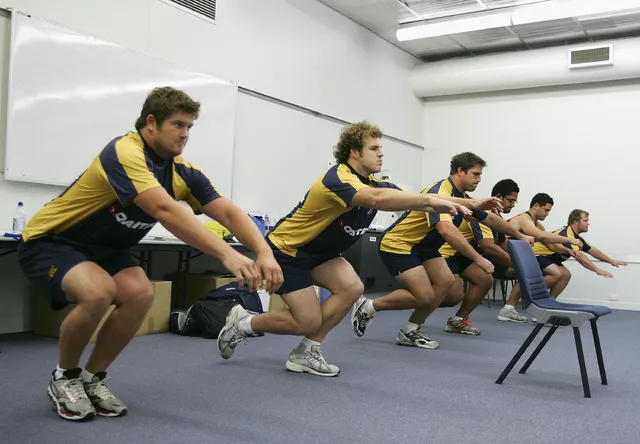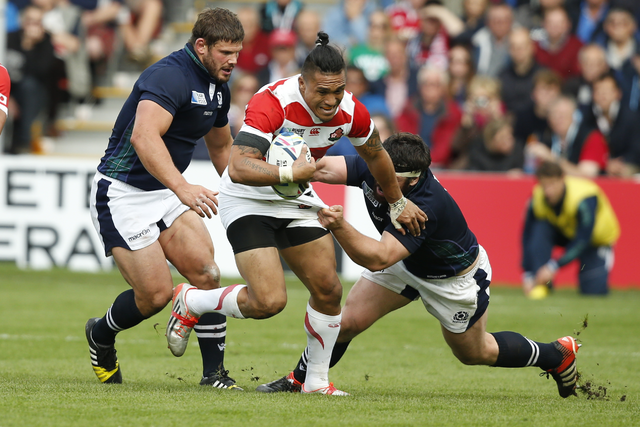The Essential Components of Rugby Player Training
Rugby players understand the importance of training for peak physical performance. Whether it is strength, speed, or endurance, the game of rugby requires players to have a combination of all three. So, how do rugby players train?
Strength training is essential for rugby players. It helps them become more powerful in their tackling and scrummaging. Players must develop their overall body strength and also focus on particular muscle groups that are used in the game. For example, core muscles are essential for players to maintain their balance while tackling and running with the ball. Plyometrics, Olympic lifts and weight training are all popular exercises used by rugby players to increase their strength.
Speed and agility are also important components of rugby players’ training. Agility is key to avoiding tackles and making successful passes. To increase their agility, players will often do a combination of running drills, footwork drills, and cone drills. Speed is also important, as it helps players break away from tackles while running with the ball. Rugby players will often do interval training, sprints, and plyometric exercises to increase their speed.
Endurance is also important for rugby players. As the game is physically demanding, players must be able to last for the full 80 minutes. To increase their endurance, players will often do long distance running, cycling, and swimming. These activities will help increase their cardiovascular fitness, enabling them to last longer in the game.
Nutrition is also an important component of rugby player training. Eating a balanced diet and avoiding processed foods helps players maintain their energy levels during the game. Hydration is also key to help players perform at their peak. Rugby players should ensure they are drinking enough water throughout the day to stay hydrated.
Finally, recovery is an important component of rugby player training. Players must take the time to rest and recover after games and training sessions. This can include getting enough sleep, stretching, and using ice therapy or other recovery techniques. Taking the time to recover will help players stay healthy and avoid injury.
Exploring the Benefits of Strength and Conditioning for Rugby Players
Rugby is a physical and demanding sport, and as such rugby players have to ensure they are in peak physical condition. Strength and conditioning training is an essential part of any rugby player’s routine, and there are many benefits to it that can help rugby players to not only perform better, but also to stay healthier and avoid injury.
Increased Strength, Power and Stamina
Strength and conditioning training, when done properly, can help rugby players to increase their overall strength, power and stamina. This will help them to perform better in games, reducing their fatigue levels and enabling them to stay on the pitch longer. It will also help them to push themselves further and do more in their training sessions, improving their overall performance.
Injury Prevention
Strength and conditioning can also help to prevent injuries. By regularly training with weights and resistance bands, rugby players can increase their core strength, which will protect their bodies from the physical demands of the game. This will help them to stay healthy and avoid injuries, enabling them to stay on the pitch longer.
Improved Performance
Strength and conditioning training can help to improve the performance of rugby players in a number of ways. It can help them to increase their strength and power, enabling them to perform better in games. It can also help them to maintain their energy levels throughout the game, enabling them to stay on the pitch longer and perform at an optimum level throughout.
Mental Fitness
Strength and conditioning training can also help rugby players to stay mentally fit. By regularly challenging themselves in the gym, rugby players can increase their focus and mental strength, enabling them to perform better in games and stay focused for longer. This will help them to stay on top of their game and perform at their best.
Conclusion
Rugby is a physical and demanding sport, and as such rugby players have to ensure they are in peak physical condition. Strength and conditioning training is an essential part of any rugby player’s routine, and there are many benefits to it that can help them to not only perform better, but also stay healthier and avoid injury. With the right strength and conditioning program, rugby players can increase their strength, power and stamina, prevent injuries, improve their performance, and stay mentally fit.





